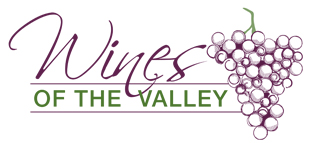Durant duo joins pioneers of the Yamhill valley vines
By KARL KLOOSTER
A litany of noteworthy names roll off the tongues of those who claim familiarity with the roots of northern Oregon's latter-day wine industry. They include David Lett, Dick Erath, David Adelsheim, Dick Ponzi, Susan Sokol, Bill Blosser, Bill Fuller and Myron Redford, along with Charles "Chuck" Coury, though his tenure was all too brief.
What's far less known is that in the early 1970s, these father figures of the wine industry were joined by a couple whose names deserve to stand with them – the Durants.
Ken and Penny Durant, both hailing from California, met while students at Oregon State University in the late 1960s. They got married and decided to make their home in Oregon, so in 1969 they moved to Portland with their two small children.
Their mutual interest in growing things triggered an irrepressible urge to own some land, and that drew them to the Yamhill Valley. After a three-year search, in 1973, then bought a sizeable piece of property in the Dundee Hills and planted 60 acres of grapes.
The long-term significance of what they were doing didn't strike home at the time. They just knew they had been thrust into something combining the attributes of an exciting adventure with those of a daunting challenge. They quickly got to know everyone in the industry and become part of a shared dream.
Their interest was in growing the best possible grapes, which wedded well with those trying to make the best possible wines.
The Durants said Coury was the group's mentor in those early days. A meteorologist and horticulturist, Coury had traveled extensively in France. That convinced him northern Oregon had what it takes to grow great grapes.
A master's thesis he wrote while studying at UC Davis became something of a mantra for the trailblazing band. In it, he declared, "Any variety yields its highest quality wines when grown in such a region that the maturation of the variety coincides with the end of the growing season."
It was further fuel to stoke the fire burning within this fervent bunch of believers, and none more so than the Durants who were staking everything on the success of their fruit.
As with all the early vineyards in Oregon, the Durant vineyard featured plants on their own roots. That made it vulnerable to the phylloxera root louse, which devastated the vineyards of Europe in the first part of the 20th century.
"There was no sign of phylloxera in Oregon then," Ken said. "Maybe we were lucky, but we got more than 30 years out of those vines before it started showing up."
Penny served as vineyard manager for 25 years. Their son, Paul, took over in 1998. During her tenure, the family holdings grew to 165 acres, all in the Dundee Hills. The Durants grow pinot noir, pinot gris and chardonnay.
There are three separate sites coming under the collective name, Durant Vineyards. They are designated by block, carrying such names as Home Vineyard, South View and Stony Crest.
New plantings include some Dijon-clone chardonnay.
Winemaker Luisa Ponzi considers the resulting vines "some of the best in the country." She said, "The Durants have learned through many years and many vintages the best possible way to work with their specific site and soil to produce fruit of the highest quality."
Ponzi Vineyards became one of the Durants' first customers when they began working together in 1975. Others holding ongoing contracts include Domaine Drouhin, Sokol Blosser, Lange Estate, Bergstršm, Hamacher, Argyle, ADEA, Cottonwood, White Rose and Owen Roe.
In 2003, Paul talked his parents into having a little bit of wine made under their own name, and they have expanded business interests to include Penny’s Red Ridge Farms business."
Located on Breyman Orchards Road, Red Ridge Farms features 300 types of herbs and 100 types of lavender, along with and a garden shop that stocks some amazing exotics. All this flora flourished under Penny's gifted green thumb.
The place also boasts a rental apartment above the family's retail shop, which has to be seen to be believed. And the family now has an olive oil operation, saying that growing olive trees shares some similarities with growing grape vines.
Related Content
-
Read more...
2-Intro: Growing the Grapes
Great wines must begin with quality grapes, and that’s what makes the wines of the Yamhill Valley ...
-
Read more...
Growing it Shea's way for nearly a quarter century
Even in the midst of an excellent field, a few consistently show superior stuff in tending to the vineyards
-
Read more...
Wedded winegrowers find way from Midwest to Oregon
The married team of Susan Meredith and Frank Mitchell made the transition to the Northwest
-
Read more...
Chapter 2 Intro: Growing The Grapes - Copy 1
Great wines must begin with quality grapes, and that’s what makes the wines of the Yamhill Valley ...
-
Read more...
Bringing in the bounty from Yamhill Valley vineyards
An inside look at some of the growing conditions faced annually by winegrowers of the Yamhill Valley


